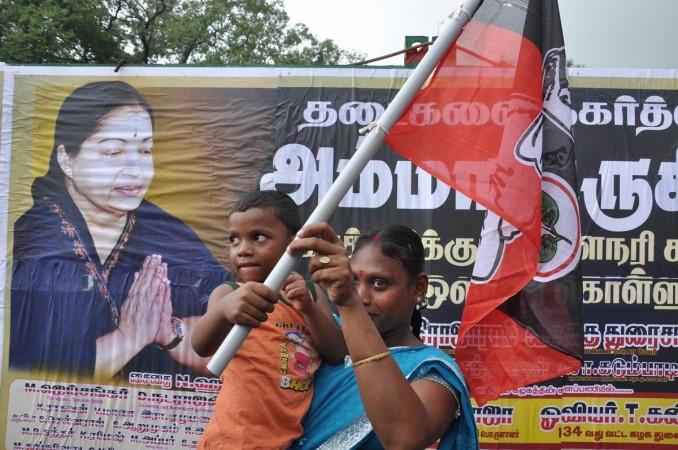
Whichever of the two main Dravidian parties assumes power in poll-bound Tamil Nadu, the state exchequer will stand to lose Rs. 20,000-30,000 crore a year just in implementing the election promises, reports Business Standard, citing projections by economists. Both the parties' election manifestos are now out to woo voters with a host of freebies, subsidies and loan waivers.
The ruling All India Anna Dravida Munnetra Kazhagam (AIADMK) published its manifesto on May 6, two weeks after its arch-rival Dravida Munnetra Kazhagam (DMK). The populist measures adopted by both parties have sent economists in the state into a tizzy of financial math.
The freebies alone would cost Rs. 10,000 crore a year if implemented, said MR Venkatesh, a chartered accountant. Subsidies and loan waivers added to it will "amount to Rs. 20,000-30,000 crore a year," he added.
The AIADMK's manifesto, released 10 days before the election date (May 16), has gone full throttle with benefits to its voters. A lull in its popularity in the statewide opinion polls has prompted it to unleash a gamut of poll bounties, reported the Indian Express.
The party has promised freebies like phones to all ration-card holders, laptops and internet to students, and one sovereign gold coin (eight grams) for marriage. It has promised Rs. 18,000 as maternity assistance, Rs. 1 lakh as assistance to each temple and hike in assistance by Rs. 5,000 for fishermen nd their families. The AIADMK has also promised to waive all loans with co-operative banks and bank loans availed by students who have remained unemployed. Subsidised farm loans, which will burden the state Rs. 40,000 crore, will be disbursed in the next five years.
On the subsidy front, the AIADMK has offered 50 percent rebate for working women to buy two-wheelers, and 100, 250 and 750 units of electricity free from the total consumptions by ordinary households, handloom and powerloom weavers, respectively.
Business Standard quoted an economist as saying that if 10 lakh women chose to ride subsidised mopeds or scooters, the subsidy bill would amount to Rs. 2,000 crore. Similarly, 100 units of free electricity alone will cost Rs. 2,200 crore a year.
An inadequate definition of who qualifies to be called a working woman would mean squandering of the state's resources, said the economist. Similarly, a government report notes that the state's power distribution company is in itself an ailing entity receiving Rs. 2,560 crore from the government. The Indian Express report said the Tamil Nadu Generation and Distribution Corporation Limited (TNGEDCO) has a debt of Rs 80,000 crore.
In a state long known for its two-party politics, the opposition DMK has a similar roll-out plan with financial repercussions. A few of its freebies, like smartphones, being limited to poor only does not lend itself to an easy impact assessment, an economist told Business Standard.
There is "an element of surprise" in the AIADMK manifesto, Suresh Babu, a senior professor in policy and economy at IIT Madras, told IE. "But you can't give an overdose of promises and freebies to people when your focus is not on the productive sectors of the economy," he said.
R Srinivasan, an econometric professor at University of Madras, said existing freebies alone could have cost the state Rs. 15,000 per year.
Subsidy spend for a year is Rs. 50, 000 crore, noted Venkatesh. He added that Tamil Nadu's outstanding debt was Rs 2.1 lakh crore in 2015-16.
Meanwhile, in a move that could set the state exchequer back by Rs. 27,000 crore a year, both parties have also promised banning the sale of liquor in the state if brought to power.

















